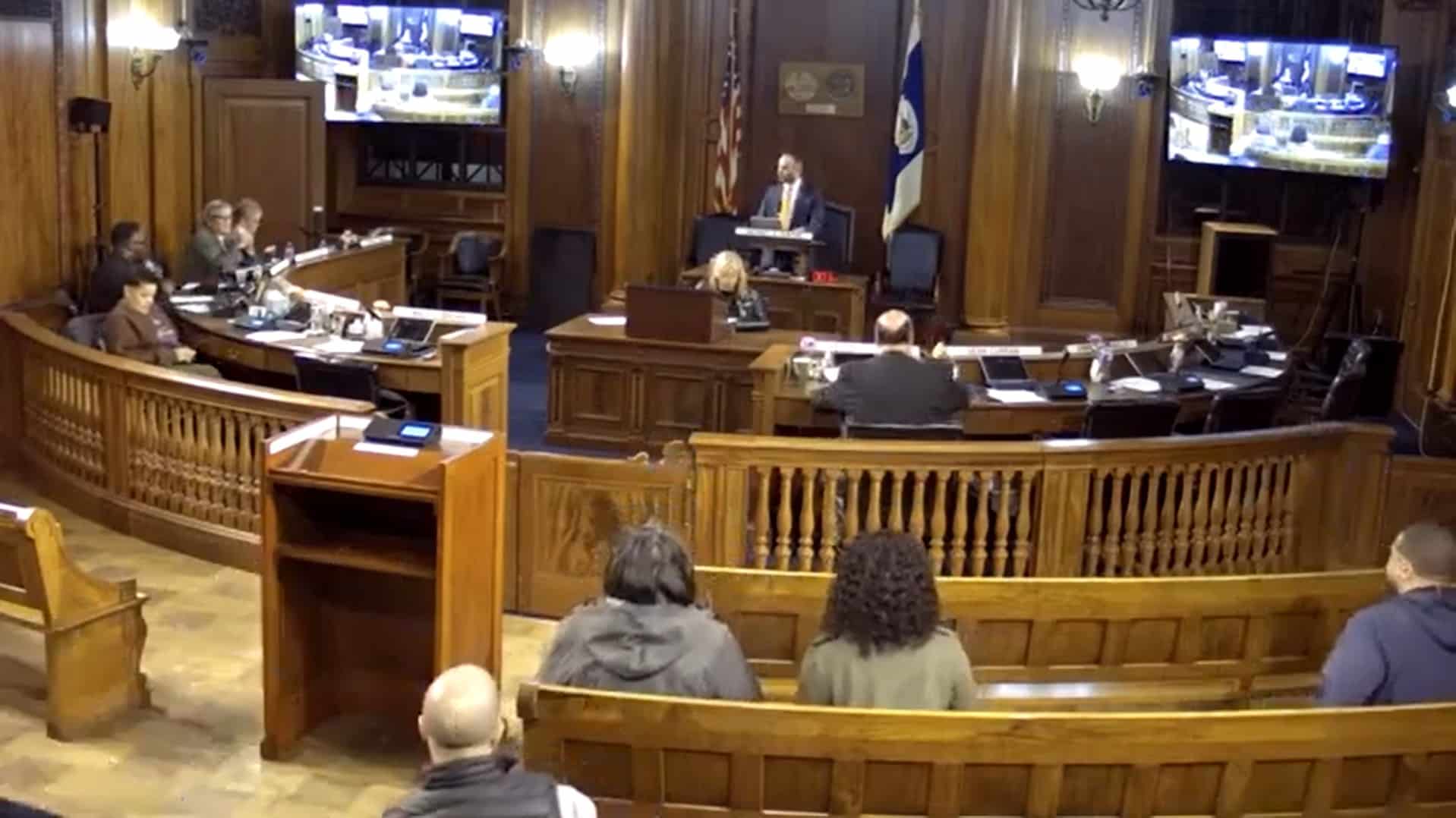The City Council voted on a reduced tax rate for residents, but people will still see an increase on their tax bills.
Photo Credit: Focus Springfield
SPRINGFIELD — The Springfield City Council officially accepted a fiscal year 2025 residential tax rate of $15.68 per $1,000, a $.38 reduction from the FY24 rate.
Despite that, the average single-family tax bill will still increase by $177 because home assessments continue to increase, according to Patrick Greenhalgh, the chair of the city’s Board of Assessors. Greenhalgh noted that the average single-family home is $255,800, a 7% increase compared to the FY24 assessment.
The $177 increase could have been worse if not for a couple of key votes during the council’s special Nov. 25 meeting. Aside from accepting a lower residential tax rate, the council also voted in favor of Mayor Domenic Sarno’s proposal to use $6 million to offset the tax levy: $4 million from free cash and $2 million from the interest on the innovative financial investment plan off of the United States Treasury notes.
Sarno originally offered $3 million in total to offset the tax bills, which would have increased the tax bill for the average homeowner by $221, but the council’s eight-member Tax Classification Committee voted for Sarno to add an additional $2 million to offset the bills to help alleviate the tax burden on residents.
After that Tax Classification Committee vote, Sarno agreed to go higher and added $3 million from free cash to go along with the $3 million he already offered, which dropped the average tax bill increase of $221 to $177.
“My administration is committed to providing what relief and support we can while maintaining core and vital services to continue stimulating our local economy, business development, and creating more of that good four-letter word, jobs, while just as important, being respectful to our homeowners,” Sarno said in a statement when he introduced the tax rates and the $6 million to offset the tax levy.
The council also voted to shift the tax burden more to businesses by agreeing that they will pay 1.75% of the levy, the maximum allowed by law and a change from the current levy for businesses of 1.735%. Residents, meanwhile, will pay 0.77% of the tax levy amount.
“This would shift the most that we can onto commercial, giving the residents the most reduction possible,” Greenhalgh said, of these tax levy decisions.
The council voted 10-2 in support of the presented tax rates for FY25, with only City Councilors Zaida Govan and Tracye Whitfield voting against them.
“I made it my personal vow that I will not vote for a budget that increased the tax bills, and it’s not going to change today, and it’s not because of no one’s efforts here,” Whitfield said. “I think all of you did a great, wonderful, amazing job, but in my spirit and my conscience, I can’t do that to the taxpayer.”
One of those taxpayers, Rhonda Hall-Reynolds, typified the hardships some people feel with the tax bill increase, particularly those who are on fixed income. She implored the city to not increase the tax bills during public comment at the council meeting.
“Things are hard, things are tough, and people cannot continue to do this and still be happy in the City of Homes,” Hall-Reynolds said. “Right now, the people are hurting.”
In response to some residents’ concerns, city officials are currently working on a couple initiatives to alleviate some of the tax burden on residents.
During the Nov. 25 meeting, the council voted to establish the targeted tax relief program fund Sarno introduced a couple of weeks ago, which will help low-income, disabled and elderly residents who may not qualify under current tax relief exemptions.
According to Chief Administrative and Financial Officer Cathy Buono, the program’s fund will be nourished by voluntary donations from nonprofits and businesses.
“We’ve heard from the council during the budget hearings that there are people that don’t qualify for the other programs,” Buono said. “We’re hoping that this tax program will hit those individuals.”
A five-member Targeted Tax Relief Committee will form to set criteria for who is eligible for the program.
Aside from that initiative, the city is also working to boost tax exemptions for veterans by adopting the changes from the state’s recently approved HERO Act.
These initiatives are on top of other tax exemption programs the city offers, particularly for veterans, disabled people and those over the age of 65.
Reminder Publishing also recently reported on a proposal from Govan that asks the city to use more of its free cash to alleviate the tax burden on residents. Govan said she plans to propose the ordinance at a future council meeting.


